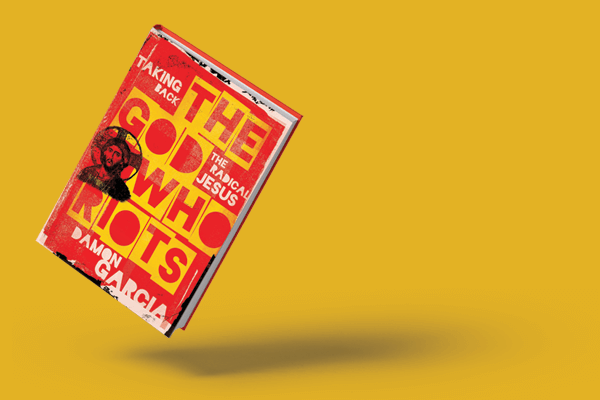“LIFE IS DEEP and simple, and what our society gives us is shallow and complicated,” Fred Rogers purportedly once said. In The God Who Riots: Taking Back the Radical Jesus, Damon Garcia makes complex concepts accessible yet still resonant and challenging. That is no easy feat, given that he references brilliant but dense writings by intellectual giants such as Paulo Freire, Frantz Fanon, and Abraham Heschel.
Garcia’s conversational writing style feels like talking with him in a coffee shop about upending oppressive systems and pursuing a faith whose end is our collective liberation here and now, not in some future paradise. Those of us who have followed Garcia’s videos on YouTube may almost hear his smooth, instructive voice encouraging us to follow the Jesus that radicalized him.
Garcia unapologetically reads the Bible through the lens of liberation theology, following the footsteps of Latin American theologians whose faith has political implications and who are on the side of the poor and the oppressed. His study of decolonial theory also informs his praxis. These decolonized, liberative models shape his argument that even protests that may result in destruction of property can be aligned with a biblical understanding of justice and the example of Jesus in the gospels.
Read the Full Article

